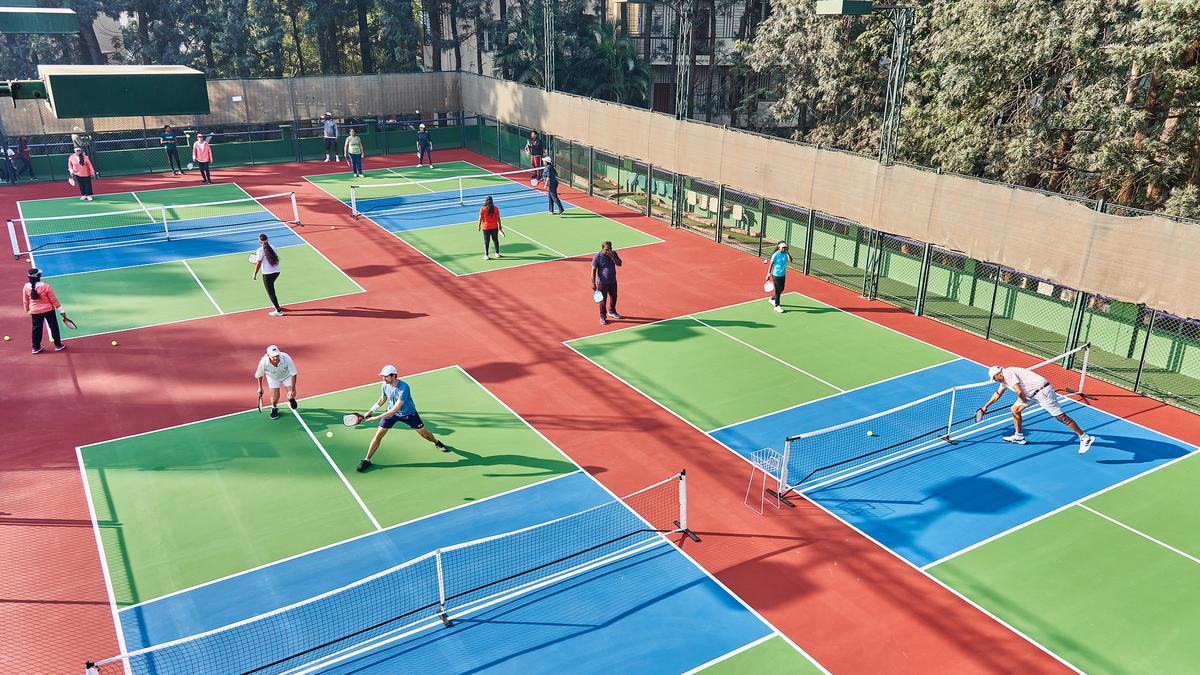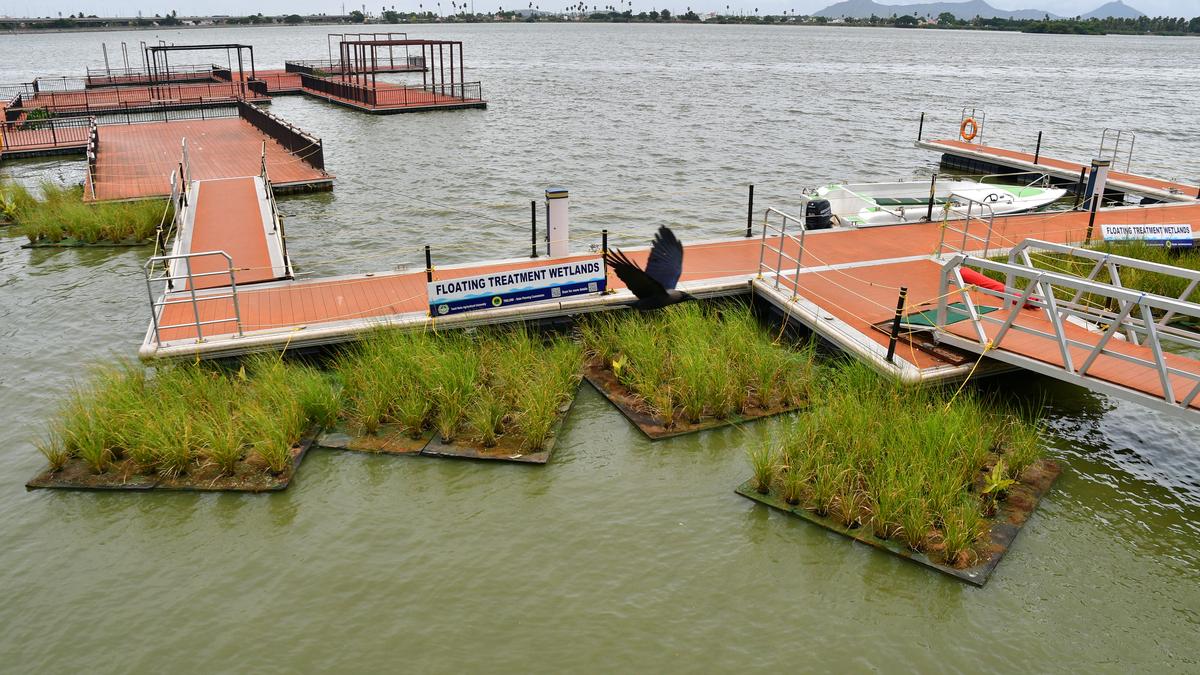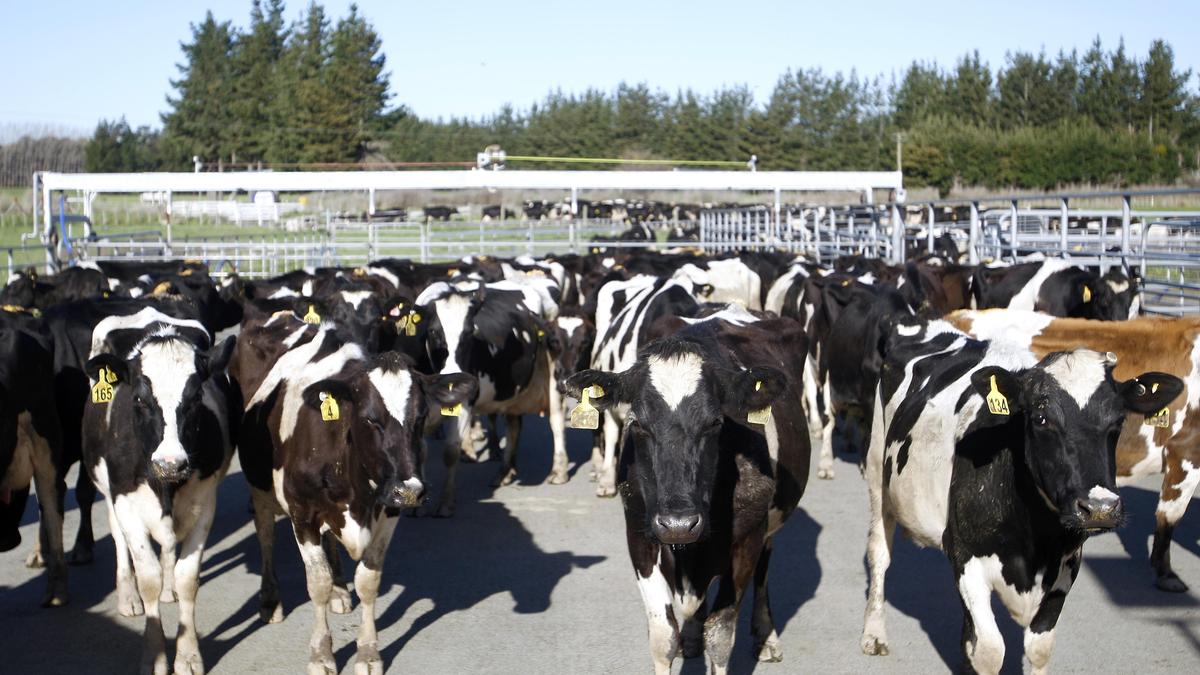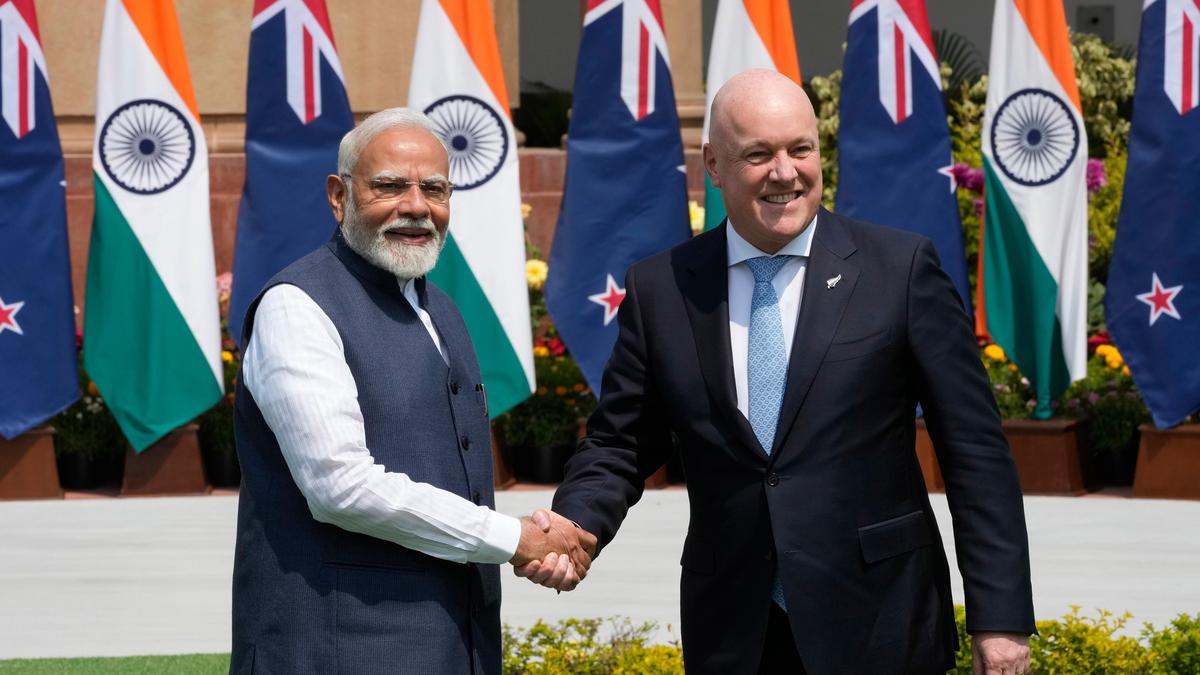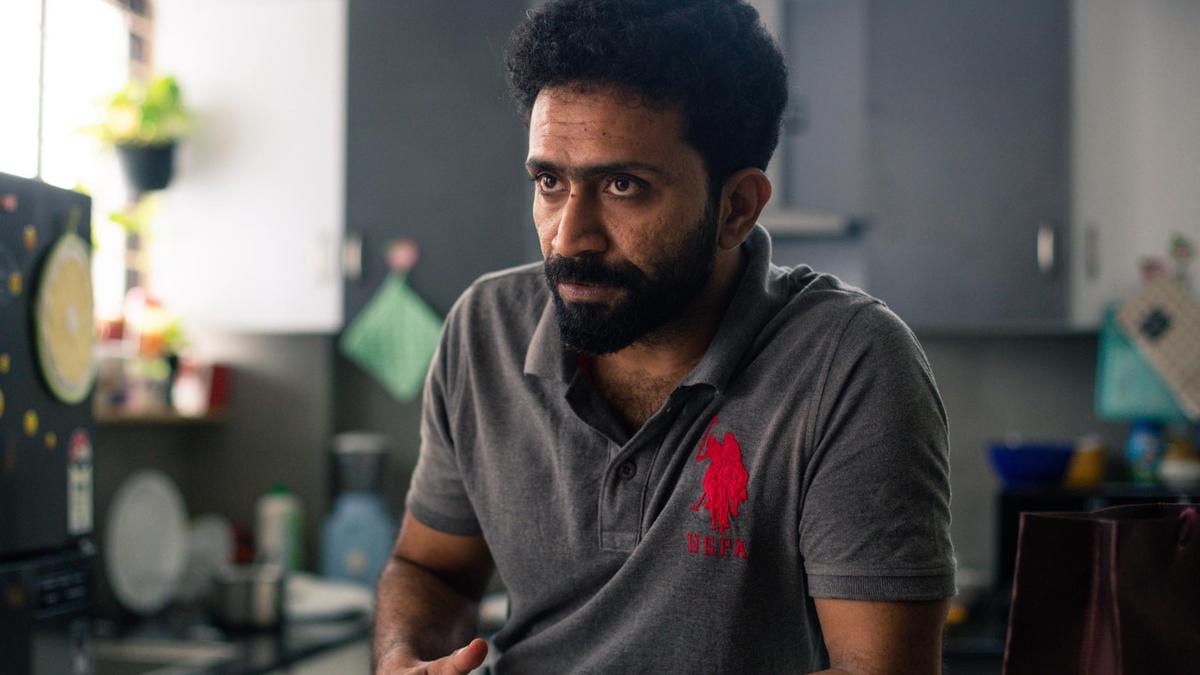A Pickleball court
| Photo Credit: Special Arrangement
Football, basketball and volleyball are old hat — pickleball is now a rage the world over. Started in 1965 in the United States, the sport now has 4.8 million players in nearly 80 countries, including India.
Pickleball combines elements of tennis, table tennis and badminton, and since it requires a fairly small court, it can be played both indoors and outdoors. As a contact-free sport, its popularity blossomed during the pandemic. An international federation and world body govern the rules and format of the game which is played on 11, 15 and 21 points. Much like the main sports it is derived from, players can serve either with an overhead or underhand move. If the ball hits the net or goes out of play, the serve changes hands and the opposite side gains a point. It can be played as singles, doubles and mixed doubles.
Pickleball was introduced to India by Sunil Valavalkar who first came across the game in 1999 while in Canada. In 2006, having learnt a lot more about the game, he decided to bring it to India. He demonstrated the game in his neighbourhood in Mumbai and over a period of time he got college and school students involved in the sport.
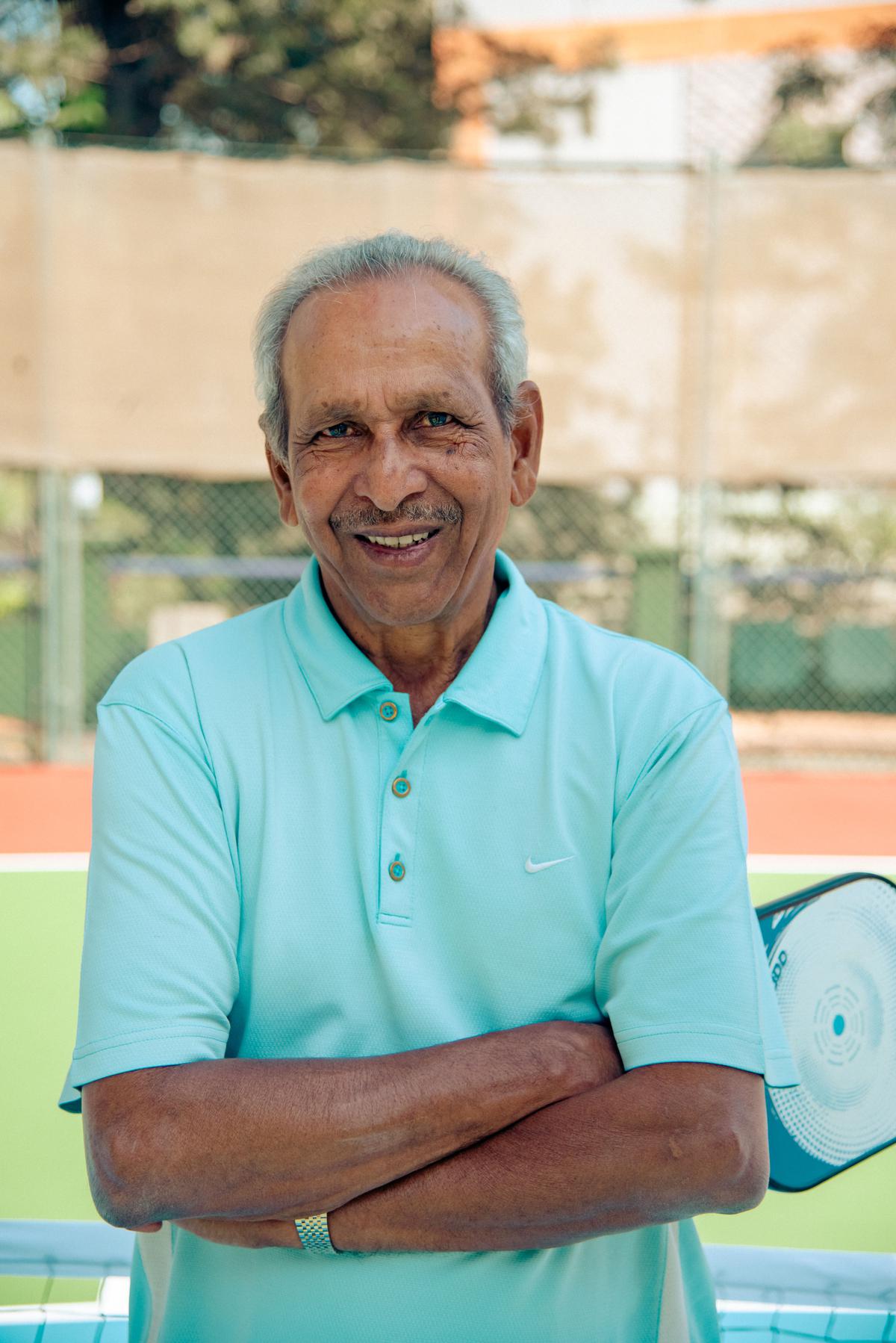
Sportsperson CG Krishna Bhupathi
| Photo Credit:
Special Arrangement
Pickleball picked up pace in Mumbai and in 2008, Sunil founded the All India Pickleball Association of India (AIPA). His persistent efforts have seen the game travel to other states as well. Together with sports enthusiast and administrator Arvind Prabhoo, the duo have extensively promoted the game and the AIPA has conducted several state, national and international tournaments following its inception.
Rajat Kankar who is the general secretary for the state pickleball association in Karnataka, sees huge potential for the game and is working towards boosting its popularity, especially in Bengaluru. There is a pickleball court in Sadashivanagar, but the state needs a quite a few more courts in order to foster public interest in the game.
To this end, the role of CG Krishna Bhupathi has been rather crucial. Father of tennis ace Mahesh Bhupathi, with a coaching experience of over two decades, Krishna has been responsible for building several international standard tennis courts both in India and abroad.
“With my team of experts, we have built hundreds of tennis courts in India and abroad, including 28 in the Melbourne Park area and Margaret Court Arena in Australia. I am excited about the prospect of pickleball picking up in a big way in our state and country,” says Krishna, adding that he has built international standard pickleball courts at the Bhupathi Tennis Village, which is a major training hub in Kodigehalli, Vidyaranyapura post, Bengaluru.
“We built four courts in the tennis village with flexi pave and an acrylic surface, which can accommodate 16 players at a time. Pickleball is a simple game requiring only a paddle and a plastic ball, making it quite affordable. Anybody in the age group of eight to 80 can quickly learn the game; it provides aerobic exercise and helps in promoting fitness,” says Krishna.
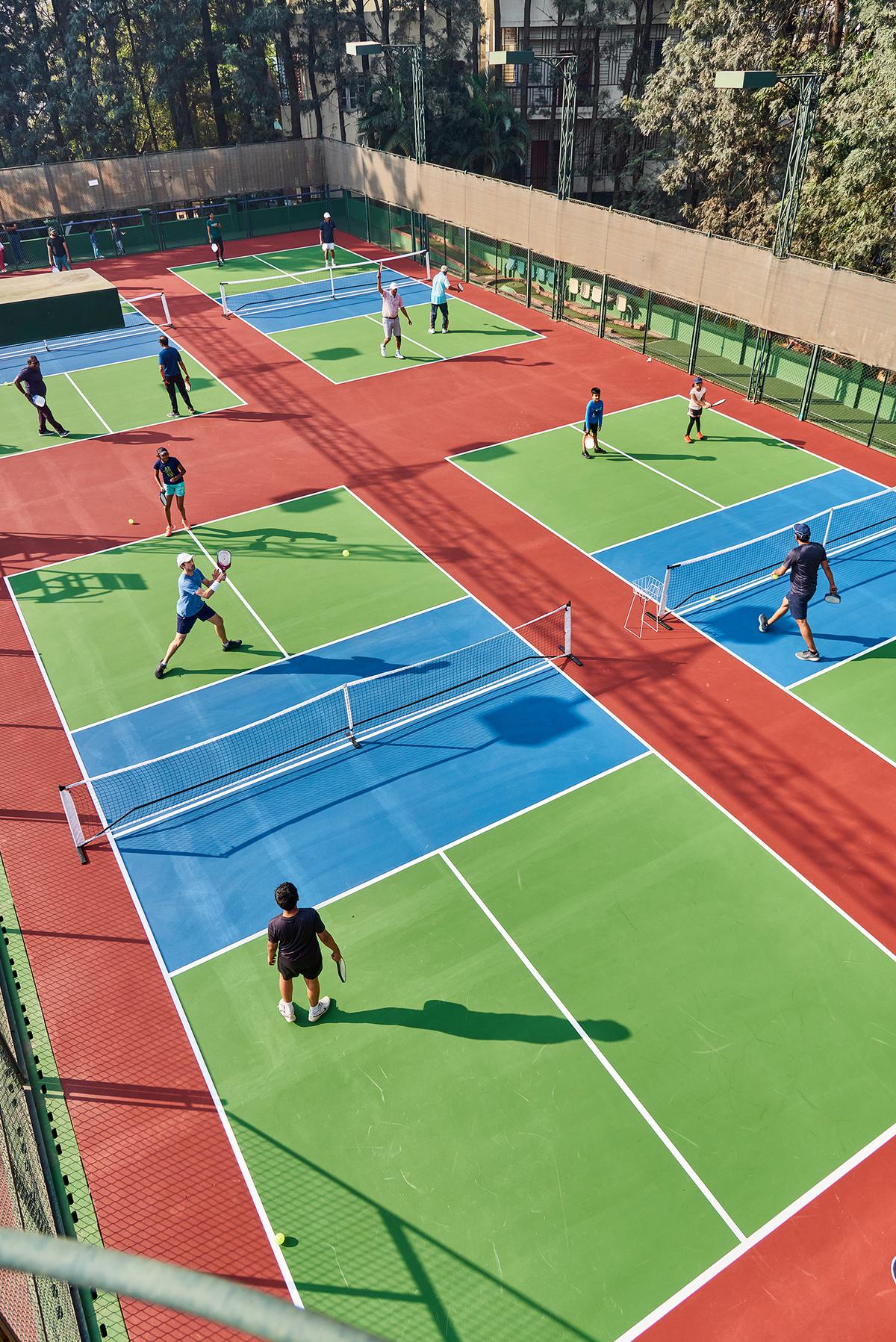
A Pickleball court
| Photo Credit:
Special Arrangement
“As it is played on smaller courts, pickleball is a fast-paced game, but speed and power alone are not as important as strategy. Indian players use the wrist more often than their Western counterparts — they can easily adapt to the game and excel at it,” he adds.
“My vision is to push the game to new heights by providing good courts and the right type of environment for the sport. I’m sure pickleball can become a major sport in the country and it is likely to become an Olympic sport in 2032. Hopefully, by then, Indian players would have gained enough experience and expertise to become dominant in the sport and make a mark on the world stage.”


